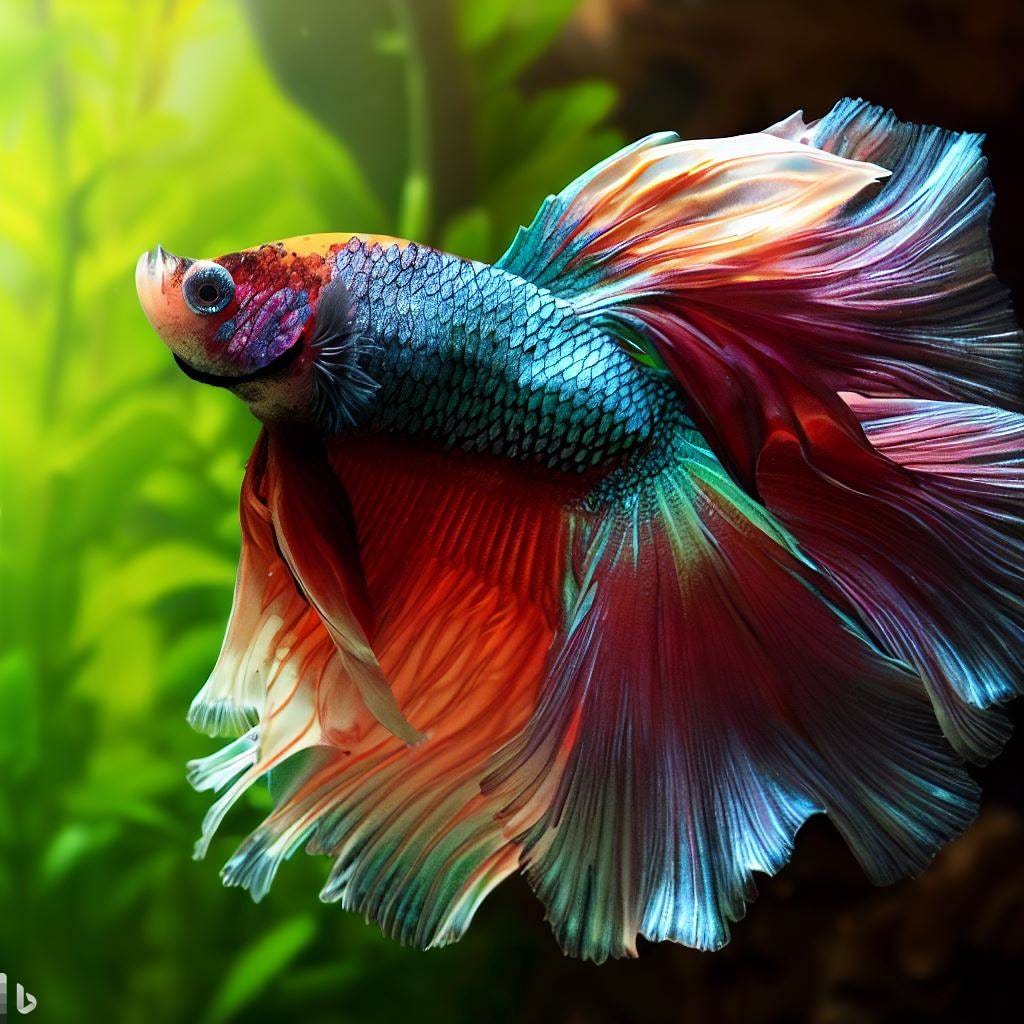The Ultimate Betta Fish Care Overview for New Animal Owners
The Ultimate Betta Fish Care Overview for New Animal Owners
Blog Article
All Regarding Betta Fish: Comprehending Their Special Demands, Behavior, and the Ideal Practices for Ideal Care
Comprehending the special needs and actions of Betta fish is crucial for any kind of aquarist looking to offer optimal care. betta fish. As we explore these aspects better, the ramifications for both beginner and seasoned fish keepers become progressively noticeable, increasing questions about how ideal to suit these exceptional fish in our homes.
Betta Fish Overview
Although usually admired for their lively colors and moving fins, Betta fish, clinically understood as Betta splendens, are complicated animals that require particular care to grow. Stemming from Southeast Asia, these freshwater fish are known for their territorial nature and unique behaviors. Betta fish display sex-related dimorphism, with males presenting a lot more dazzling shades and longer fins than ladies.
Their hostile tendencies, especially among men, necessitate cautious factor to consider when real estate them. Bettas are often maintained in single-specimen storage tanks to avoid territorial disagreements. They can coexist in harmony with specific compatible types in bigger area containers, offered the atmosphere satisfies their needs.

To make certain ideal treatment, aquarists have to understand their special behavioral qualities, dietary requirements, and environment needs. betta fish. With proper focus, Betta fish can display their lively personalities and flourish in a properly maintained aquarium setup
Natural Habitat and Atmosphere
Betta fish prosper in a diverse variety of natural habitats, primarily discovered in the shallow waters of Southeast Asia, consisting of rice paddies, swamps, and slow-moving streams. These environments are defined by warm temperature levels, usually in between 75 ° F and 82 ° F(24 ° C and 28 ° C ), and a pH level varying from 6.5 to 7.5, which is optimal for their wellness and health.
In their natural environments, Betta fish are accustomed to dense plant life, providing both sanctuary and breeding grounds. The presence of plants such as floating water lilies and thick lawns not only provides defense from killers but likewise adds to the oxygenation of the water, which is necessary for their respiratory requirements. Furthermore, these environments commonly have areas of still water, permitting Betta fish to display their natural actions such as bubble nesting.
Understanding the all-natural environment of Betta fish is critical for fish tank fanatics. Duplicating these conditions-- with water temperature level, pH equilibrium, and the inclusion of real-time plants-- can significantly improve the overall wellness and durability of these captivating fish, ensuring they prosper in a home fish tank setting.
Social Habits and Interactions
Recognizing the social behavior and communications of Betta fish is necessary for successful fish tank management. Betta fish, or Siamese fighting fish, are understood for their distinct behavioral traits, identified largely by territoriality and hostility.
Alternatively, female Bettas show less hostile behavior and can exist together in teams, referred to as sororities, if presented correctly. It is critical to monitor their communications closely, as hierarchy and dominance can lead to conflicts. Understanding the dynamics within a Betta area is important; establishing hiding areas and making certain enough room can minimize aggressiveness.
On top of that, Betta fish might additionally present inquisitiveness and social actions in the direction of various other varieties. While they can exist together with particular non-aggressive storage tank friends, it is vital to choose compatible varieties to prevent stress and anxiety and aggressiveness. On the whole, acknowledging these social interactions is crucial to cultivating an unified fish tank setting for Betta fish.
Essential Treatment Guidelines
Offering appropriate treatment for Betta fish is vital to their wellness and health. Normal water adjustments-- approximately 25% weekly-- assistance preserve water high quality.
Betta fish navigate to these guys need an ideal storage tank dimension; a minimum of 5 gallons is recommended to offer sufficient space for swimming and hiding. Include designs and plants to develop a stimulating setting, however prevent sharp objects that could harm their fragile fins.

Finally, make certain the tank is outfitted with a filter to maintain the water clean, however make use of a mild filter to stay clear of solid currents that can worry the fish. By adhering to these vital treatment standards, proprietors can promote a healthy and balanced and vibrant Betta fish.
Common Health Issues and Solutions
In the treatment of Betta fish, understanding of usual health concerns is essential for preserving their health. To treat fin rot, enhance water conditions and consider using a broad-spectrum antibiotic.
An additional typical condition is ich, a parasitic infection defined by white areas on the fish's body (betta fish). Treatment involves raising water temperature and adding fish tank salt to the container, as this can help get rid of the bloodsucker
Swim bladder problem is also frequently observed, bring about buoyancy problems. This problem may occur from overfeeding or bowel irregularity. A fasting period of 24-48 hours, followed by a diet plan of blanched peas, can give relief.
Finally, bettas may suffer from velour condition, indicated by a gold dust-like look on their skin. Therapy commonly calls for drug particularly developed for outside parasites, alongside improved tank hygiene.
Routine monitoring of water parameters, keeping a tidy setting, and giving a well balanced diet regimen are vital safety nets. By resolving these health concerns without delay, Betta fish can lead healthier, more vibrant lives.
Conclusion
In summary, successful betta fish care requires an understanding browse around this site of their unique demands and behaviors. Offering an appropriate environment, consisting of appropriate storage tank size and water conditions, is important for their health. Additionally, acknowledging their territorial nature and ensuring ample hiding spots can stop aggression. Regular tracking of health and wellness and water quality, together with a balanced diet, adds to the longevity and vibrancy of betta fish. Following these standards will foster a flourishing aquatic community for Click Here these exciting animals.
Report this page